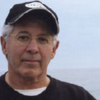David Hoffman

David Hoffman
Prolific journalist and author of non-fiction who is best known for his book The Untold Story of the Cold War Arms Race and its Dangerous Legacy. The book, published in 2010, earned him the Pulitzer Prize for General Non-Fiction.
NationalityAmerican
ProfessionNon-Fiction Author
Date of Birth5 June 1953
CityPalo Alto, CA
CountryUnited States of America
adds athletic dimension travels
It adds something athletic to your travels more dimension than just being a visitor.
agreement people unions
Nixon tried to wrap the Soviet Union into a web of agreements that would constrain its behavior. What happened is that many people lost faith in that approach, not the least because of how the Soviets handled it.
war technology challenges
In fact, the same difficulties faced by Reagan in the 1980-s are still there [in the beginning of 21 century]: how do you hit a bullet with a bullet? The technology is getting better, but it still is focused on one interceptor knocking down one missile. In war, there would be many more challenges, more chaos, more uncertainty.
talking long use
Despite his deeply-held ideology, Reagan was willing to talk to Gorbachev. He willing to do business with him. We should realize that engaging with adversaries is often one of our great strengths. As long as we use the engagement to stand up for the things we care about, there is no harm in talking.
arguing verify hard
I find it hard to argue with Reagan's old slogan: Trust, but verify.
thinking doors wind
Scholars have been arguing for a long time whether the Soviet Union could have been turned into some kind of social democracy. I doubt it myself. I think what Gorbachev didn't quite understand, until it was too late, is that his efforts at change unleashed new, certrifical forces he hadn't counted on. He opened the door a crack and a huge wind blew it open.
saving problem economic
Gorbachev was acutely aware of the [USSR] economic problems, and it was central to all he did. He wanted to change the system in hopes of saving it. In the end he could not.
strong real mean
I have no doubt that aggressively going after wrongdoing can result in real improvement. Fewer wrongdoers in city government means more honest employees; it means better city services; it means more efficient government. And punishing wrongdoing can have a strong ripple effect that deters others from going down the wrong path.
medicine profound people
With the growing recognition of the value of herbs, it is surely time to examine the professional therapeutic use of these herbs. There are profound changes happening in the American culture and herbal medicine, 'green medicine,' is playing an ever-increasing role in people's experience of this transformation.
married problem getting-married
The only problem with getting married is that we can't fornicate anymore.
across happens people safety sort walk
Typically, what happens is there will be times when people can go across, but we don't know when those times will be. It's really sort of a safety concern, but we'll try to accommodate people who want to walk across the dam.
asking calls came faced hurricane north timing
Our timing was amazing. One of the first calls I got after the hurricane was from Conrad Schmidt, asking about them. Our windows, which faced north and south, came through intact.
base behind breaks cereal cold ideal includes ingredient inherent mouth recipe
The rationale behind any recipe that includes cold cereal as an ingredient breaks down to one thing: mouth feel. Its inherent crunchiness makes it ideal as the base of a coating, crust, topping, layer, stuffing or binder.
awe days finally humans inspired object ordinary visible wonderful
For days after the launch, Sputnik was a wonderful curiosity. A man-made moon visible by ordinary citizens, it inspired awe and pride that humans had finally launched an object into space.